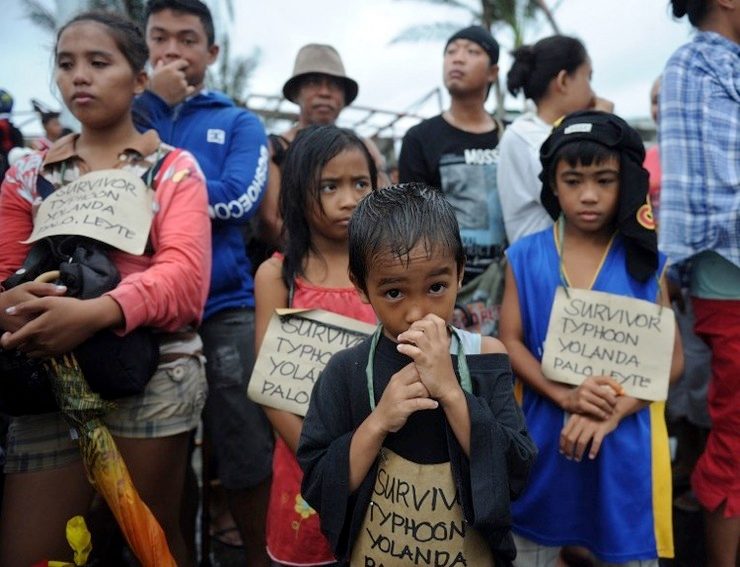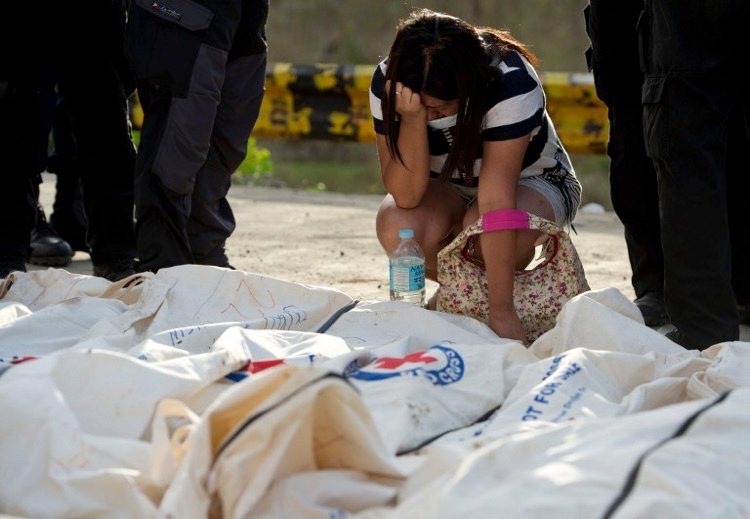SUMMARY
This is AI generated summarization, which may have errors. For context, always refer to the full article.

MANILA, Philippines – It will take another 6 months before the country sees a decline in the number of people suffering from mental disorders in Yolanda-hit areas, the World Health Organization (WHO) said.
STORIES ON MENTAL HEALTH AFTER YOLANDA:
- WHO: Mental health problems emerging in Yolanda-hit areas
- Yolanda a year after: Many still suffer grief, depression
- Post-Yolanda: Community support key to mental health
- Taking care of Marabut’s mental health
- Post-Yolanda: Depression among mothers ‘rising’
“What tends to happen is it starts to increase about 6 months to…18 months [after a disaster], then it starts declining after that, after 18 months to 2 years. But during that time, obviously people are going to need a lot of support and help,” WHO Representative in the Philippines Julie Hall told Rappler.
The most common disorders on the rise, she said, are depression, anxiety, post-traumatic stress disorder, and postnatal depression. There are also people presenting schizophrenia for the first time, while suicides have also been recorded.
The UN agency estimated over 800,000 people in Yolanda-hit areas had suffered different mental health conditions over the past year, with 80,000 requiring further medication and support.
Hall said that at the one year mark, they estimate depression and anxiety disorders to double from the baseline of about 10% of the population to 20%, while people with severe mental health illnesses are estimated to increase by about 50%.
The most prevalent among adults is post-traumatic stress disorder, followed by depression, while anxiety is the most prevalent among children according to the United Nations Children’s Fund (UNICEF).
“As soon as it starts raining, they get really worried if there’s going to be another storm [and] it’s windy. It’s deep anxiety – not wanting to leave the mother or their siblings for fear of never seeing them again, not being able to sleep, not being able to concentrate in school because their minds are going to other things,” UNICEF Philippines Country Representative Lotta Sylwander told Rappler.
Sylwander said there are children who have not gone back to school after Super Typhoon Yolanda (international name: Haiyan) due to fear of leaving their houses, although the numbers are not high. (READ: How schools can help kids heal from disaster trauma)
Vulnerable communities
While many of the disorders are considered normal reactions to abnormal situations, World Association for Psychosocial Rehabilitation (WAPR) Philippines President Lourdes Ignacio said the vulnerability of the individuals and communities is also a factor to consider.
People who are really depressed, anxious, they hide away, and you don’t end up seeing the suffering
– WHO Representative in the Philippines Julie Hall
“The people and the communities that [were] hit badly by the disaster are already those who have been vulnerable because of the social conditions they are in: [they’re living] in the river banks, they’re informal settlers, they’re poor, they’re basically [prone to diseases], they have political instability, [and] they have high infant mortality,” Ignacio told Rappler.
Some of the provinces hit by Yolanda have records of high poverty incidence.
She added, “Or on an individual basis, they probably would have been suffering from separation [with spouse] because of overseas work.”
Hall said the government is responding enough now, as health workers remain enthusiastic to help address the needs of the patients one year after.
“The signs right now are pretty promising in terms of the enthusiasm from everyone, the recognition that this is a key issue,” she added.
Points for improvement
Still, she suggested 3 things the Philippine government can improve on when it comes to addressing mental health concerns – and not just in the context of disasters:
- Educate people so they do not discriminate against people with mental health illnesses.
“It really is an illness. Just like a physical illness is, if you’ve broken your leg, you feel sorry for somebody, you can see that they’re in physical pain, mental health issues are just the same: it’s not a flaw in somebody’s character or anything like that,” Hall explained.
- Integrate mental health in primary care.
Because the Philippines has very few psychiatrists, it’s important to train local health care workers on how to diagnose mental health disorders. After all, 98% of people with mental health conditions can be treated at home and in the community.
For Dr Elizabeth Santos, also from WAPR Philippines, the government should provide logistics for mental health programs, training, and capacity building. (READ: WHO: Countries must plan for ‘common’ mental disorders)
Even response teams should have a mental health professional, she said, to help in the needs assessment of the community and for the proper psychosocial processing of survivors.
- Improve access to medications.
“Having access to the right medication is difficult in this country because the medicine supply chains are often broken, [there are] stockouts, [and there are problems in] the affordability of the medicines themselves and ensuring the right medicines are available here in the Philippines,” Hall said.
The challenge is to get more modern antipsychotics and antidepressants that are more cost-effective and have fewer side effects, and to make them available all the way down to the community level.

More work to do
When it comes to mental health, Hall said that if the Philippines wants to meet what has been achieved by Indonesia 18 months after the 2004 Indian Ocean tsunami and earthquake, then it has “quite a bit more work to do.”
“We do have some good figures of what things look like 18 months after the tsunami, and we know right now that the Philippines certainly has some work to do if we’re going to hit those kinds of levels that they saw in the tsunami 18 months [after], so right now, things seem to be a little higher here in the Philippines,” she explained.
But the Asian Development Bank earlier said rehabilitation efforts in Eastern Visayas are actually “moving faster” than what was seen in Aceh, Indonesia 10 years ago.
The Philippines should do better in mental health too, Hall said.
“It gives a good understanding and a target to be able to work towards as well. Because otherwise it ends up being a neglected issue. People who are really depressed, anxious, they hide away, and you don’t end up seeing the suffering,” she added. – Rappler.com
For Rappler’s full coverage of the 1st anniversary of Super Typhoon Yolanda (Haiyan), go to this page.
Add a comment
How does this make you feel?
There are no comments yet. Add your comment to start the conversation.